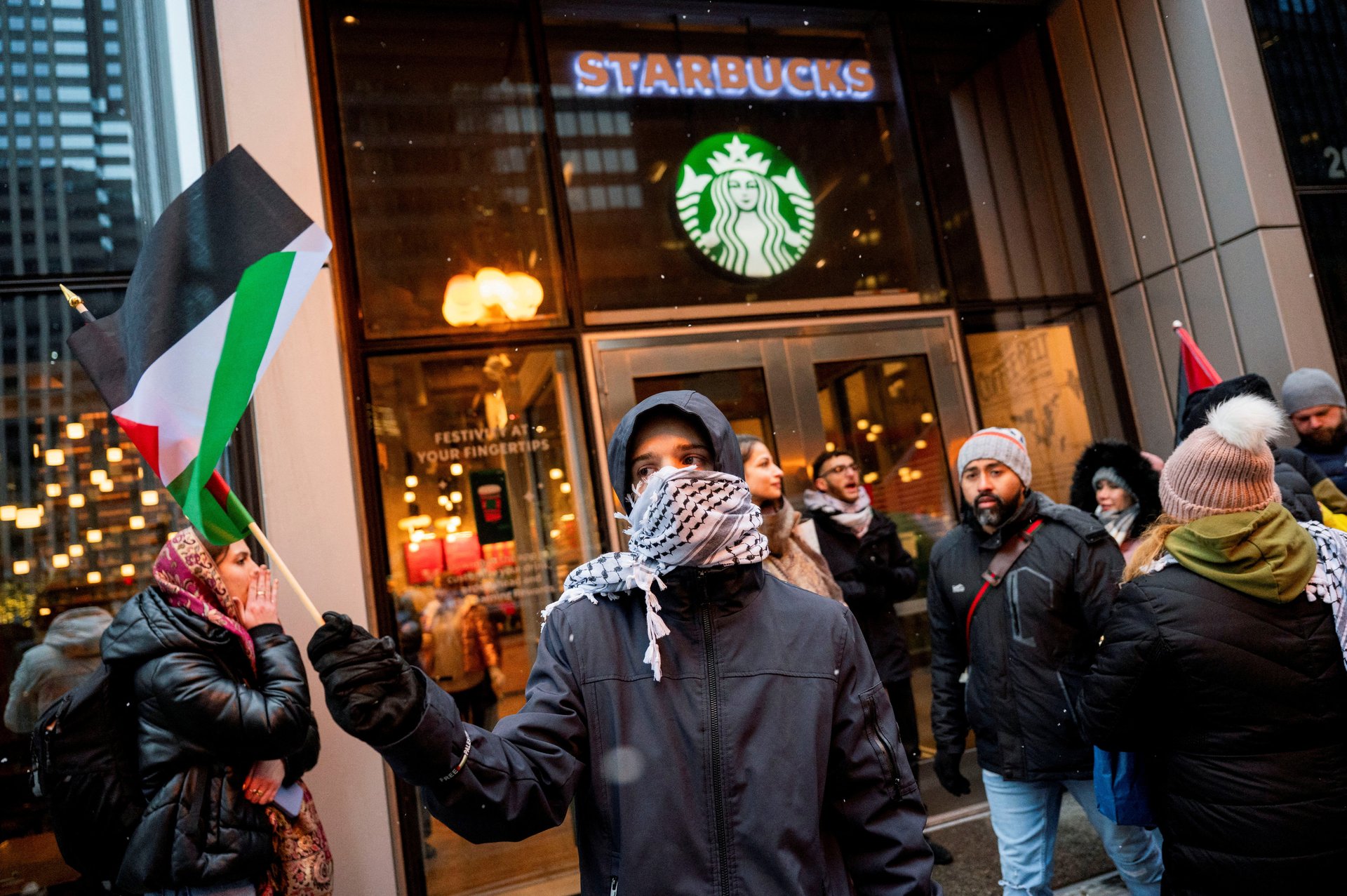A Starbucks franchise is cutting thousands of Middle East jobs after the Israel-Hamas war squeezed sales
Starbucks has been hammered with criticism over its stance on Israel's war in Gaza

A Starbucks franchisee in the Middle East plans to lay off about 2,000 workers across its coffee shops in the region as the Israel-Hamas war continues in the Gaza Strip and the brand faces protests in the U.S.
Suggested Reading
“As a result of the continually challenging trading conditions over the last six months, we have taken the sad and very difficult decision to reduce the number of colleagues in our Starbucks MENA stores,” the Kuwait-based Alshaya Group said in a statement. The group is a private family firm that holds franchise rights for several Western companies in the Middle East and Europe, such as the Disney Store, The Cheesecake Factory, Shake Shack, and Bath & Body Works.
Related Content
Alshaya has 1,900 Starbucks branches in 11 Middle Eastern and North African markets. It had employed some 19,000 workers before the layoffs, which reduced its staff by 10%, according to Seattle-based Starbucks.
Starbucks has been at the forefront of the backlash against Western brands in the U.S. since Israel invaded the Gaza Strip following the Oct. 7 Hamas attack on Israel. Some of the brand’s locations have been spray-painted with Pro-Palestinian graffiti, and some employees have been publicly criticized by irate customers accusing the brand of being pro-Israel. Once-loyal customers have boycotted Starbucks.
The coffee giant has dismissed claims that it has a political agenda and pushd back against what it describes as “ongoing false and misleading information being shared about Starbucks” on social media. Those claims, in part, were caused by Starbucks Workers United, which has organized workers in at least 370 U.S. stores.
In October, Starbucks sued the group representing its unionized workers over a since-deleted Oct. 9 social media post that expressed solidarity with the Palestinians. The coffee giant said Workers United’s “reckless and reprehensible behavior” muddled the public’s view of its stance on the conflict and sparked criticism from pro-Israel groups.
To prevent confusion, Starbucks demanded Workers United immediately stop using the Starbucks name or likeness. The union fired back with its own lawsuit. The parties have since entered mediation and agreed to begin discussing a framework to establish collective bargaining agreements and end ongoing litigation.
Starbucks reported record revenue in its most recent fiscal quarter, although it was still lower than analysts had expected. Starbucks CEO Laxman Narasimhan told investors the brand suffered slowed U.S. traffic in November, partly due to pro-Palestinian boycotts.
“I am deeply distressed by the violence shaking the region,” Narasimhan said at the time. “As I have shared, Starbucks condemns violence against the innocent, hate, and weaponized speech.”
Other Western brands, including Burger King and Taco Bell parent Yum! Brands, have also faced calls for boycotts in recent months. Both Burger King and McDonald’s have faced a backlash after local affiliates and franchisees donated food to the Israeli military.
